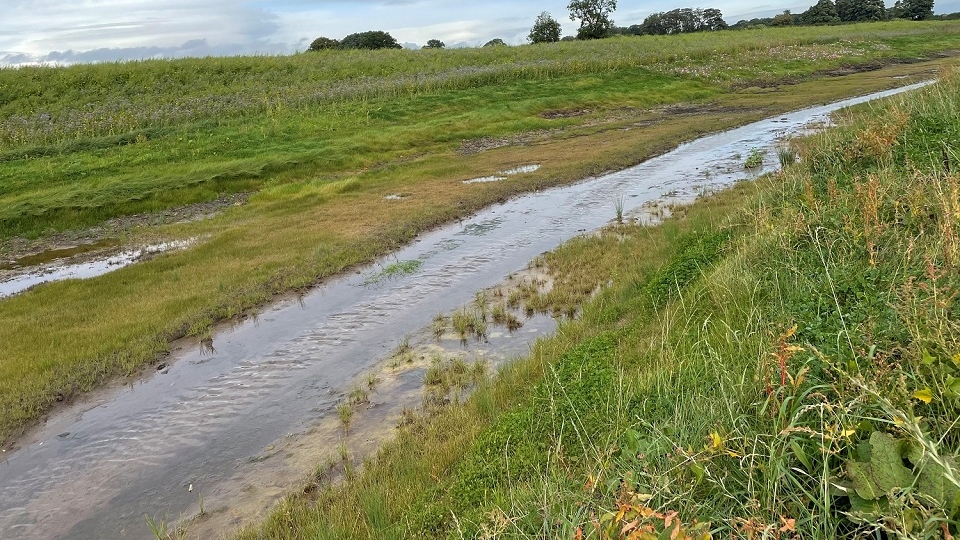New wetland habitat, reduced pollution and a restored riverbank are just some of the enhancements made in a three-year £230,000 project to improve water quality in a North Yorkshire River.
The wide ranging ‘Wild Wiske Revival: Clean and Green’ project, carried out in partnership between the Environment Agency and Yorkshire Wildlife Trust, focused on restoration of the River Wiske, a heavily modified North Yorkshire river.
Land management caused sediment and its associated nutrients and chemicals to enter the river, smothering the river bed and leaving few areas for fish to spawn. This was exacerbated by livestock accessing the river and compounded by unstable river banks and erosion.
Working closely with landowners, the project – near Northallerton – started in April 2019 and centred on creating new habitats and reducing the amount of sediment and water run-off from land and farms entering the river. Yorkshire Wildlife Trust action included:
- installing over 3.5 miles of fencing to prevent livestock going into the river, reducing sediment and allowing the river banks to recover,
- planting over 1,500 trees and 300m of new hedgerow to stabilise the river banks, reduce run-off from the land into the river, provide habitat for wildlife and increase shade to cool the water in summer,
- reprofiling 1,300m of river bank to reduce erosion,
- uncovering a 500m culvert at South Otterington, creating 1.5ha of new wetland habitat and reducing flooding to farmland and farm buildings,
- giving advice to five landowners on pest management to reduce pollution entering the watercourse.
Allison Pierre, from the Environment Agency’s Environment Programme team, said: “The River Wiske has a long history of intensive management for land drainage – historically it has been straightened, deepened and widened resulting in an unnatural channel with little value for wildlife.
“This fantastic three-year project to improve conditions has made great strides in bringing the river to life.
“The result is reduced pollution, improved water quality, new habitat for wildlife to thrive and reduced flooding, plus it’s contributing to improvements under the Water Framework Directive.”
Claire Burton, River Restoration Officer for Yorkshire Wildlife Trust, led the work on the ground. She added: “I really enjoyed the practical aspects of this project, which has allowed us to carry out significant changes to the watercourse and its tributaries, benefitting both wildlife and landowners.
“Daylighting the culvert was the largest part of the project, turning a fallow field edge which regularly flooded into a meandering watercourse and wetland.
“We have also fenced off sections of watercourse to prevent livestock poaching the river banks, installed drinking bays, reprofiled the collapsing river banks and planted trees. In all it’s a really beneficial project for the local area and environment.”
The Water Framework Directive is a directive which requires all waterbodies to achieve good ecological status, but the river was lacking in macrophytes and phytobenthos, invertebrates, dissolved oxygen, phosphate and fish.
The project was funded by the Water Environment Grant (WEG) through the Rural Development Programme for England to ensure it met the requirements of the directive. The WEG team comprises the Environment Agency and Natural England, which decide which projects receive funding.
The 300m hedgerow was funded by the Farming and Wildlife Advisory Group (FWAG) ‘Close the Gap’ fund.



